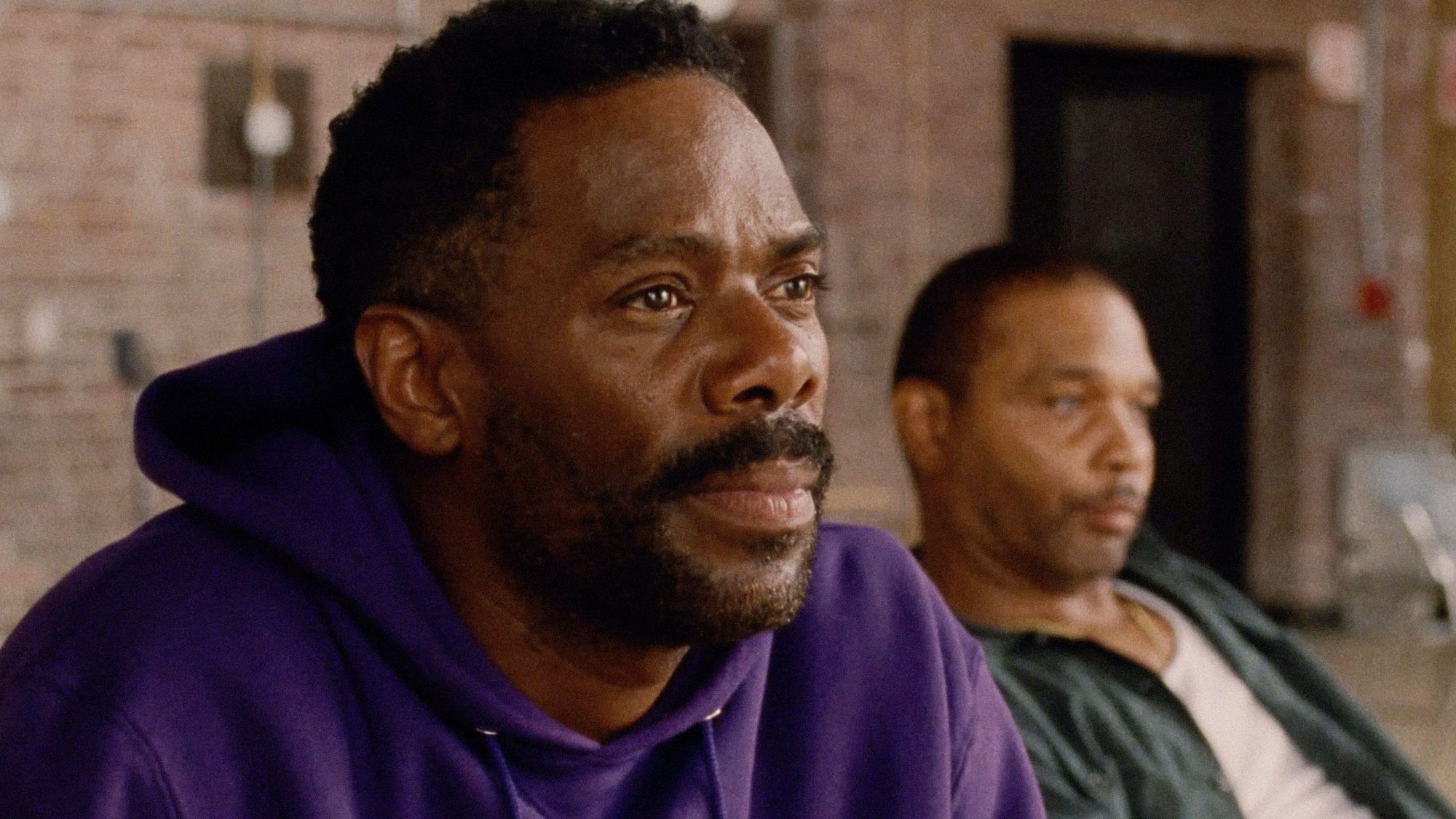Out of the Wreckage: George Monbiot offers a revolutionary remedy for society's ills
The writer tells The Week that his new optimistic tome should appeal to those on both ends of the political spectrum

A free daily email with the biggest news stories of the day – and the best features from TheWeek.com
You are now subscribed
Your newsletter sign-up was successful
“Brexit will trigger an economic crisis.”
It’s clear within the first few minutes of The Week's interview with George Monbiot that the writer, polemicist and environmentalist is not afraid of tackling contentious topics head on.
And the economic crisis that Monbiot predicts looks ever more possible following the PFI scandals that marked 2018's early moments.
The Week
Escape your echo chamber. Get the facts behind the news, plus analysis from multiple perspectives.

Sign up for The Week's Free Newsletters
From our morning news briefing to a weekly Good News Newsletter, get the best of The Week delivered directly to your inbox.
From our morning news briefing to a weekly Good News Newsletter, get the best of The Week delivered directly to your inbox.
“What the Carillion and Capita fiascos show is that companies that fed on outrageously generous government contracts start imploding when market forces kick in,” he tells The Week on the morning of the latter’s first profit warning.
“In other words, far from introducing the efficiencies of the market into public service provision, mass outsourcing and public-private partnerships shielded private companies from market forces.”
Monbiot has just published his latest book, Out of the Wreckage - a call to action which, despite his gloomy warnings about Britain’s exit from the EU, is remarkably positive.
He argues that as a community we need to come up with more practical proposals to change the world for the better.
A free daily email with the biggest news stories of the day – and the best features from TheWeek.com
In the book, Monbiot proposes a variety of ingenious mechanisms to bring about change, including taxing land holders to create common wealth trusts, participatory budgeting, and redistribution mechanisms like a universal basic income. In addition to tackling economic inequality, he lays out proposals for overcoming the rampant corruption of democracy by big money today.
He argues that we can only affect change by remembering that we are profoundly social beings, that human beings gain a sense of meaning through community.
Despite being vehemently opposed to what he describes as the “Hayekian hegemony”, Monbiot insists he has “quite deliberately tried to write Out of the Wreckage for any reader, regardless of political leaning.”
“Not least because everyone could be described as potential floating voter,” he says.
To highlight this point he says that he “received a positive tweet from Michael Gove, of all people”.
A large part of the book’s appeal is its focus on the things that unite people rather than those which divide them.
“When you look at core political values - many are strikingly different between those on the left and the right - but there are two that seem to be universal, community and belonging, so that at least is a common language from which to start with,” Monbiot says.
“Values are the bedrock of effective politics,” he says. “They represent the importance we place on fundamental ways of being, offering a guide to what we consider to be good and worthwhile.”
“Values can be expressed in single words, for instance 'togetherness', principles describe the world in which you want to live like: ‘I want to live in a world where everyone has access to excellent education’”
It is here that he says progressives on the left have failed, by not challenging the perceived wisdom of Thatcher, Blair et al.
This failure is the central theme of the book. Monbiot's thesis is a response to the lack of a story being told by progressive politicians following the economic recession in 2008.
Neoliberalism had failed, Monbiot argues, but still the West let the architects of its downfall come up with the supposed cure: austerity.
That political failure stemmed from “a lack of political imagination” among progressives that can only be remedied “by explaining a new narrative, to stimulate people’s political imagination”.
“Values and principles should never change - but policies should grow from them and change. Progressives have been really bad at explaining what their values and principles are but very good at policies,” he argues.
“Values and principles must be embedded in a new narrative, a new story.”
So could Jeremy Corbyn and Momentum help build that narrative? Monbiot offers cautious praise for the opposition leader’s new approach to politics.
“Momentum have taken a lot of good qualities from the grassroots campaign of Bernie Sanders in the US. They used those qualities to run a very effective election campaign.”
But there’s still a way to go, he says.
“Protest is necessary but not sufficient, to be only oppositional is not enough, you must create a clear offering of your own. You have to know your values - to say these are our core values, to underpin our politics.”
As our interview comes to a close, Monbiot explains that at the core of his new book is a call to arms:
“When crisis has occurred in the past - new ways of thinking have developed. In 2008, neoliberalism fell and we had no new story of our own with which to replace it.”
“Out of crisis is always opportunity, an opportunity to say okay this isn’t working, now’s the time to adapt.”
The Out of the Wreckage audiobook narrated by Monbiot himself is available for £7.99 with a membership from Audible.co.uk
-
 Magazine solutions - February 27, 2026
Magazine solutions - February 27, 2026Puzzle and Quizzes Magazine solutions - February 27, 2026
-
 Magazine printables - February 27, 2026
Magazine printables - February 27, 2026Puzzle and Quizzes Magazine printables - February 27, 2026
-
 ‘The forces he united still shape the Democratic Party’
‘The forces he united still shape the Democratic Party’Instant Opinion Opinion, comment and editorials of the day
-
 Friendship: 'bromance' comedy starring Paul Rudd and Tim Robinson
Friendship: 'bromance' comedy starring Paul Rudd and Tim RobinsonThe Week Recommends 'Lampooning and embracing' middle-aged male loneliness, this film is 'enjoyable and funny'
-
 The Count of Monte Cristo review: 'indecently spectacular' adaptation
The Count of Monte Cristo review: 'indecently spectacular' adaptationThe Week Recommends Dumas's classic 19th-century novel is once again given new life in this 'fast-moving' film
-
 Death of England: Closing Time review – 'bold, brash reflection on racism'
Death of England: Closing Time review – 'bold, brash reflection on racism'The Week Recommends The final part of this trilogy deftly explores rising political tensions across the country
-
 Sing Sing review: prison drama bursts with 'charm, energy and optimism'
Sing Sing review: prison drama bursts with 'charm, energy and optimism'The Week Recommends Colman Domingo plays a real-life prisoner in a performance likely to be an Oscars shoo-in
-
 Kaos review: comic retelling of Greek mythology starring Jeff Goldblum
Kaos review: comic retelling of Greek mythology starring Jeff GoldblumThe Week Recommends The new series captures audiences as it 'never takes itself too seriously'
-
 Blink Twice review: a 'stylish and savage' black comedy thriller
Blink Twice review: a 'stylish and savage' black comedy thrillerThe Week Recommends Channing Tatum and Naomi Ackie stun in this film on the hedonistic rich directed by Zoë Kravitz
-
 Shifters review: 'beautiful' new romantic comedy offers 'bittersweet tenderness'
Shifters review: 'beautiful' new romantic comedy offers 'bittersweet tenderness'The Week Recommends The 'inventive, emotionally astute writing' leaves audiences gripped throughout
-
 How to do F1: British Grand Prix 2025
How to do F1: British Grand Prix 2025The Week Recommends One of the biggest events of the motorsports calendar is back and better than ever